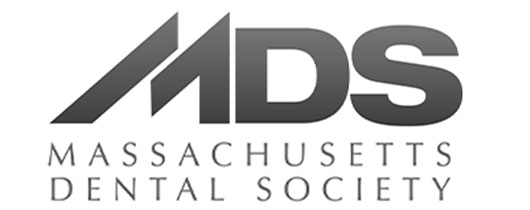Dental X-rays are a key part of modern dentistry. They help your dentist check your oral health in detail. X-rays can spot problems like tooth decay, gum disease, and issues with the jawbone. These are things you might not see during a regular checkup. Some people worry about radiation exposure. The good news is that dental technology continues to improve. Now, the levels of radiation are lower than before, so the process is much safer.
Reasons Dentists Recommend Dental X-Rays
Dental X-rays play a crucial role in identifying and treating various oral health issues. A regular exam can detect some issues, but an X-ray can reveal hidden problems, such as cavities, gum disease, and infections.
These radiographs help dentists provide care just for you. You may have tooth decay or require dental work on your teeth. Regardless, X-rays provide a detailed view of your teeth and gums.
Detecting Cavities, Infections, and Gum Disease
Dental X-rays let you and your dentist see problems that you can’t spot with your eyes alone. These images of your teeth reveal small cavities, abscesses, and signs of gum disease that can be easily missed. They help you spot decay not just on the surface, but in hidden places, like between your teeth.
If you have gum disease, dental X-rays can help check for any bone loss under your gums. Knowing this can help dentists determine if there is an infection or abscess before it worsens. Early care means fewer problems over time.
These X-rays also reveal signs of tooth decay hidden beneath old fillings. Used with an exam, X-rays give you and your dentist a full look at what’s going on with your teeth and gums. This focused care, based on clear images, is essential for all patients, but it is particularly beneficial for children or individuals new to dental care.
Monitoring Tooth Growth and Jaw Development in Children and Teens
Dental growth in children and teenagers needs to be monitored closely. This is essential for maintaining a healthy mouth over many years. Dental X-rays help with this because they show how teeth, such as molars and wisdom teeth, are coming in.
Dentists use these X-rays for young people. They look for problems with how the teeth line up and watch how the lower jaw grows. If a child starts to have bone loss and bones get weaker, the dentist can use solutions like braces at the right time.
These X-rays guide treatment and help avoid oral health problems later. They are very important for teens, especially if they might need braces, because these dental tools help identify issues early.
Safety Concerns: Are Dental X-Rays Harmful?
Dental X-rays use low radiation levels, which remain within a safe range for individuals. The benefits of this dental procedure outweigh the small risk of cancer associated with radiation exposure.
Most people will not be harmed by getting an occasional dental X-ray. Dentists also take steps to protect individuals who may be at a higher risk. This demonstrates that they prioritize radiation safety when working. Some stories about dental X-rays are not true and can make people worry.
Radiation Exposure: Myths vs. Reality
Many people worry about radiation exposure from dental X-rays, but the risks are often made to seem worse than they are. Some people think the level of radiation from one dental X-ray is the same as months of natural background radiation. The Journal of the American Dental Association states that this idea is not accurate.
The truth is, the amount of radiation from modern dental X-rays is about the same as what you get from a few days of natural background radiation. Regular dental exams, such as bitewing or panoramic x-rays, use only the amount that is needed. When a full check is needed, the small level of radiation is worth it for the sake of your health.
It’s helpful to know the facts about radiation exposure and distinguish between legitimate concerns and myths. This can make patients, including pregnant women and others who may feel at risk, feel better about getting dental X-rays. For those who require additional support, safety measures are in place to protect them.
Special Considerations for Pregnant Women and Children
Pregnant women and kids are more at risk from low levels of radiation than most adults. That is why extra steps are taken to keep them safe. The dental team will shield the abdomen and avoid unnecessary tests.
The American College of Obstetricians and Gynecologists states that dental X-rays are a low-risk procedure if the abdomen or fetus is protected with special gear, such as a lead apron. Children also receive smaller doses tailored to their size.
These extra steps help protect people the most, even those who might be at more risk, so that dental X-rays give good results in a safe way. Checking for patient protection in daily dental work is just as important to their health as well.
Learn More About Dental X-Rays
Dental X-rays are essential for maintaining your oral health. Most of the time, they are safe when performed by a dental professional. These X-rays help you and your dentist find cavities, infections, and other dental problems early. This means you can get care quickly. Many people worry about radiation exposure, but new technology has made the risk much lower. This makes dental X-rays a necessary part of checking and maintaining your teeth’s health. It is beneficial to discuss any safety concerns you have with your dental provider regularly. They can work with you to set up X-ray times that are best for you. If you reside in Methuen, Lawrence, Lowell, and Southern New Hampshire would like to learn more about dental X-rays or discuss your own needs, please contact Hassey Do Duy TK Dental today.




